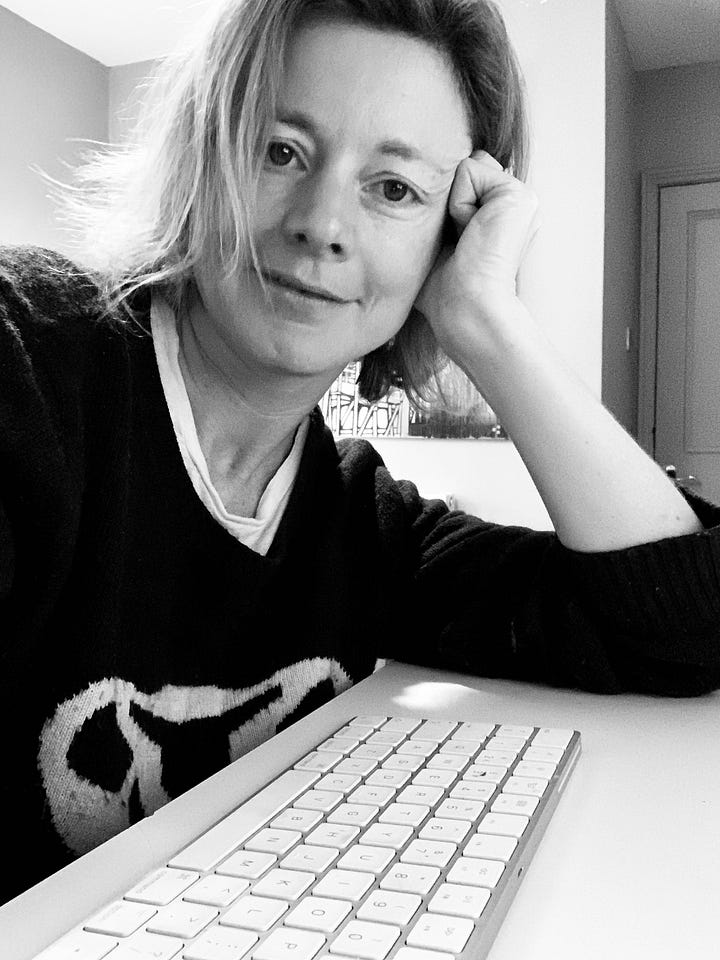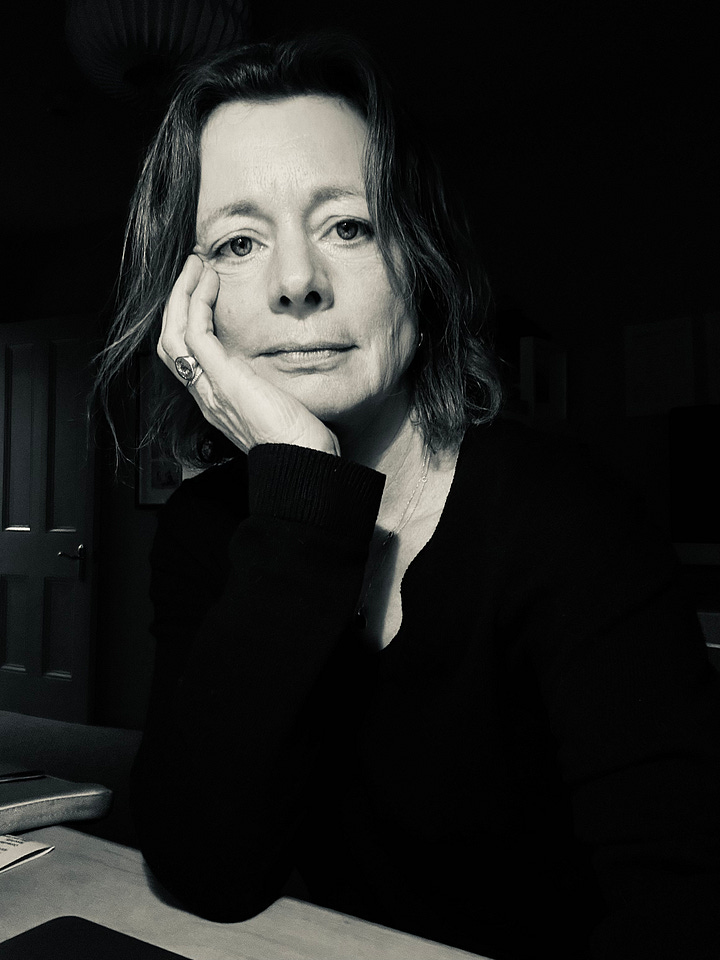It’s five years since Covid, five years since so many of us turned our thinking around and got to the truth about climate, consumption and capitalism. Five years since the fashion industry collectively decided enough was enough, and we needed to do things differently. Five years since I discovered biomaterials, biochemistry, the joy of wool, how to read a label, the advantage of renting, the sublime purity of reduction, the pioneers reconnecting and onshoring supply chains, the work of scientists and artists in fixing a broken system.
‘Look at what all these amazing people are doing!’ I said. ‘We may be facing huge challenges, but we do actually have all the answers - we just need to get them out there.’ People agreed, people were interested in ‘sustainability’, and approaching the subject with positivity, hero-ing what was right, felt right. Could I be a green optimist? ‘Yes,’ I thought, and pitched my tent.


At the time, the Booker Prize-winning author Arundhati Roy wrote a piece in the Financial Times that chimed beautifully with this thinking, and it lit a fire beneath us all:
“Historically, pandemics have forced humans to break with the past and imagine their world anew. This one is no different. It is a portal, a gateway between one world and the next. We can choose to walk through it, dragging the carcasses of our prejudice and hatred, our avarice, our data banks and dead ideas, our dead rivers and smoky skies behind us. Or we can walk through lightly, with little luggage, ready to imagine another world. And ready to fight for it.”
And then…
… normality returned.
And the revenge shopping era came. And everyone forgot about all these things.
The fashion shows all went back on schedule, luxury goods companies experienced 12% growth flogging cheaply made branded goods to those desperate for a status fix, and the birth of Shein and Temu sealed the deal in shopping depravity. The Say/Do gap became a thing - while 80% of us said we were changing our consumer choices, less that 40% of us actually were.
This year things got worse. Events have been galling to say the least, with the rise of the climate deniers, (“drill baby, drill”), the watering down of the progressive legislation posed by a once visionary EU, and the closing of the economic net around everyone and everything, allowing little room for forgiveness and movement. The fires may have whipped through Los Angeles, but the Oscars chose to honour the firefighters, and then carry on regardless.
I understand this. Human nature needs creativity, happiness and joy. In the US the daily chaos and terror raining down cannot be the only story. It’s the same with sustainability - we cannot spend our days in a state of perpetual fear. We need to feel empowered, inspired and progressive.
Finland is a good example. It has once again been voted the happiest country in the world (8th year in a row), with access to nature, a strong welfare system, greater social equality, high levels of trust, saunas (90% of Finns go to a sauna every week), and a news media that promotes optimism and cohesion. Meanwhile the energy in Africa, Asia and the Middle East is a world apart from ours. My brother lives in Hong Kong and loves his life, is thriving at work and home. He admires Chinese infrastructure and transition, and gets his news from foreign sources. All those expats in Dubai are living it up in their outside air conditioning, happy to swap sexual freedom for zero tax. A friend who lives half the time in Morocco and half in Paris is considering a full time move to the bigger continent, “Because everyone here is so young, everything is so exciting. Europe feels like a museum,” she says, (60% of the African population is aged under 25).
Where are the rest of us going wrong?
The polycrisis isn’t helping. Competing disasters are creating such cacophonous noise and are so alarming, many of us are turning away and tuning out for self protection. According to Reuters, the biggest trend in the UK today is news avoidance. I get that, I’ve had to stop listening too. It’s so much easier to click on a self esteem boosting Shop Now button and buy the mass produced branded sweatshirt everyone wants and nobody needs. It’s comforting, right?
What I do know, as a child of the 90s and a paid up Gen X-er, is fun is important. We need joy. It breaks down barriers, creates the dynamics of action, encourages alliances (as anyone who has made friends on a dance floor knows). I have always been an optimist by nature and it is great armour against the current pandemic of anxiety.
In the excellent play Kyoto, which is a highly amusing and unlikely romp through ten years of climate conferences and the oil and gas industry’s attempts to sabotage them, the play demonstrates that when the greatest moment of impasse comes, and all countries feel entrenched in their competing positions, it’s culture and joy that force a breakthrough. The organisers of the Rio summit take the COP delegates into the rainforest and stage a performance of A Midsummer Night’s Dream, directed by Werner Herzog. I looked it up - this actually happened. As the playwrights Joe Murphy and Joe Robertson have it, it was this experience that united the delegates around a common goal of agreeing climate change was man made and therefore could be - and needed to be - reversed. A monumental shift.
We need a Werner Herzog moment now. COP30 is travelling back to Brazil this year and in anticipation the organisers have ploughed a 4 lane superhighway through the centre of the rainforest to host it. Five years on from Covid, 30 years on from the very first COP, what can the climate lobby, a huge and growing group of believers and armchair activists, do in this moment to limit the climate emergency? To engage business, finance, government and the public? To expedite social change?
I’m going to get a bit personal below the paywall, and that’s not for public consumption.



